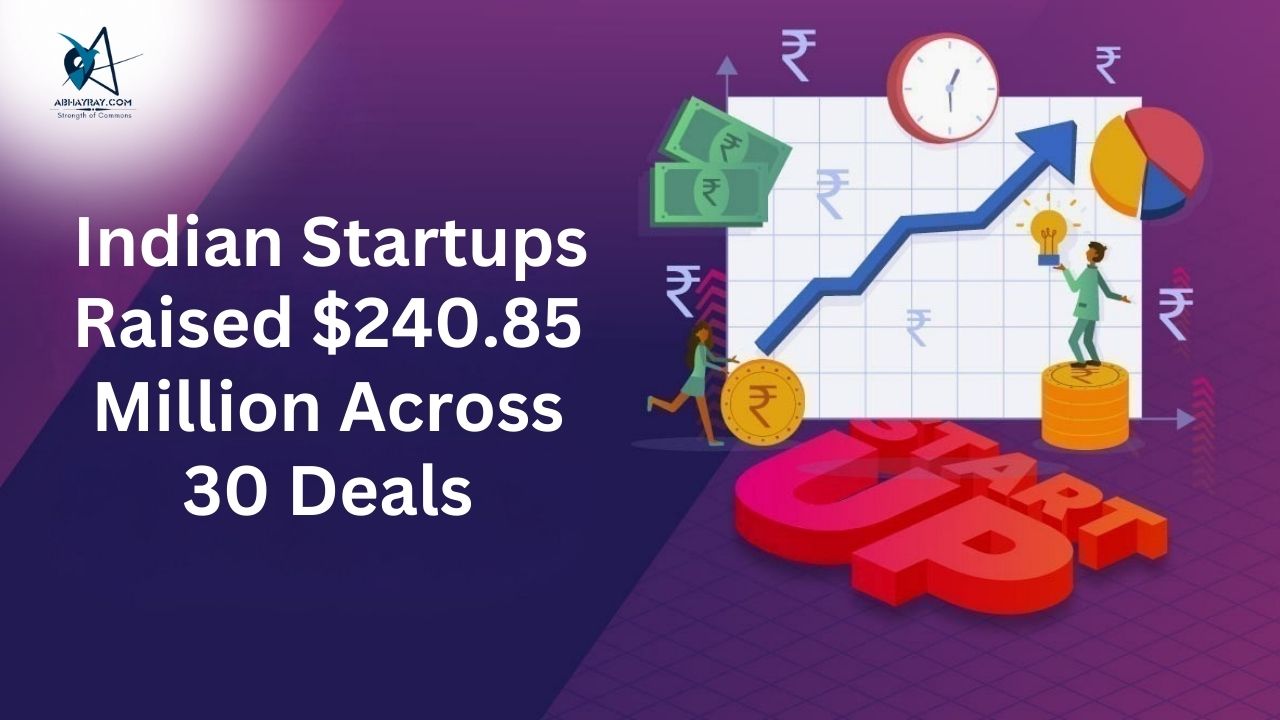Introduction
This week, Indian startups collectively secured $240.85 million in funding through 30 deals. Despite a slight 3.22% decrease compared to the previous week’s funding total of $248.87 million, the ecosystem continues to demonstrate significant investor interest, especially in growth-stage startups. The funding data provided by Entrackr highlights the ongoing dynamism within India’s startup landscape, with growth-stage investments emerging as the key driver of the funding activity.
Bengaluru Leads in Funding Activity, Followed by Delhi-NCR
As the dominant startup hub in India, Bengaluru topped the list for the highest number of funding rounds, with 12 deals closed this week. The city continues to maintain its leadership role in terms of both the quantity and quality of investments, attracting a diverse set of investors. Following Bengaluru, Delhi-NCR ranked second, contributing significantly to the overall funding amount. Other major cities such as Mumbai, Chennai, and Patna also contributed to the week’s deal activity, highlighting the growing startup ecosystems across India.
The funding trend shows that Bengaluru remains the most active city for startup investments, but Delhi-NCR is catching up with a burgeoning pool of investors and innovators. The spread of deals across various regions underscores the growing significance of diverse cities in India’s startup scene.
E-Commerce, SaaS, and Fintech Attract Most Investor Interest
Investor interest this week was led by e-commerce startups, which secured the highest number of funding deals, closing five rounds in total. This trend reflects the continued attractiveness of digital-first business models, particularly in the e-commerce space. Following e-commerce were SaaS (Software as a Service) and fintech startups, with each sector attracting three deals. The ongoing digital transformation in India is fueling the demand for SaaS-based solutions and financial technologies, drawing significant capital inflow into these sectors.
Aside from e-commerce, SaaS, and fintech, other industries such as foodtech, healthtech, and manufacturing also saw investments. These sectors reflect a broader range of investor interests, indicating that the Indian startup ecosystem is not only thriving in traditional sectors like e-commerce but is also expanding into newer, tech-driven industries.
Growth-Stage Investments Drive High-Value Deals
Growth-stage investments played a crucial role in this week’s funding activity, with several large rounds in the spotlight. The biggest deal of the week came from Leap, an edtech startup, which raised $65 million in a Series E round led by Apis Partners. This investment highlights the ongoing demand for digital education platforms, particularly as India’s education system increasingly adopts technology-driven solutions.
In the B2B space, Captain Fresh, a seafood startup, raised $30 million in an ongoing pre-IPO round, signaling investor confidence ahead of its expected initial public offering. Additionally, SuperOps, a SaaS-based IT management platform, raised $25 million, further reflecting the growing popularity of SaaS solutions for business management and IT operations. Another key growth-stage investment involved a supply chain startup that secured $12 million in a Series C round, backed by Evolvence India and Mirabilis Investment Trust. These high-value rounds highlight the appeal of startups that are not only established but also positioned for significant scaling in the coming years.
Early-Stage Startups Secure $107.15 Million
In addition to growth-stage deals, early-stage startups also attracted considerable investor attention. A total of 20 early-stage companies collectively raised $107.15 million this week. Leading the charge was Atomicwork, a B2B SaaS startup, which secured $25 million in a Series A funding round. This substantial investment reinforces the appeal of SaaS solutions, particularly those targeting business operations and workplace collaboration.
Other notable early-stage fundraisers included Innov8, a co-working space provider, which continues to tap into the growing demand for flexible office spaces. Geri Care, a senior healthcare service provider, raised funds to expand its offering, reflecting the increasing demand for senior care services. Astrome Technologies, a telecom startup, and VoltUp, a mobility startup, were also among the key players raising funds, each working to disrupt their respective sectors. In addition, startups like Dressfolk, a direct-to-consumer (D2C) handloom clothing brand, and Prisomoline, a road safety product manufacturer, raised capital, though the specific amounts were not disclosed. These early-stage deals reflect the diverse range of sectors that are attracting capital in India, from healthcare and mobility to fashion and safety.
Startup Acquisitions Reflect Growing Consolidation
Beyond funding rounds, the Indian startup ecosystem also witnessed a series of significant acquisitions, underscoring the growing trend of consolidation in various sectors. Raise Financials made headlines by acquiring Filter Coffee, a financial media startup. This acquisition highlights the increasing importance of financial media in shaping the broader financial services sector, as investors and consumers alike look for more in-depth, data-driven content in the financial domain.
Similarly, Shadowfax, a leading logistics firm, acquired CriticaLog, marking a strategic move in the highly competitive logistics space. With the rapid growth of e-commerce and last-mile delivery services, logistics companies are increasingly looking to consolidate and enhance their offerings. This acquisition signifies the growing need for robust, efficient, and scalable logistics solutions that can meet the demands of India’s evolving e-commerce market.
Conclusion
The week saw Indian startups raise $240.85 million across 30 funding deals, with a slight decrease from the previous week’s funding total. Growth-stage investments played a significant role in this week’s funding activity, with key deals in sectors like edtech, seafood, and SaaS. Bengaluru continued to lead in funding rounds, closely followed by Delhi-NCR and other emerging startup hubs across India.
E-commerce, SaaS, and fintech dominated the sectors attracting investor interest, with a variety of early-stage and growth-stage startups securing substantial funding. In addition to the funding, strategic acquisitions in the financial and logistics sectors showed that India’s startup ecosystem is maturing and evolving, with companies seeking to consolidate and expand their market presence. With such a diverse range of sectors receiving attention from investors, the Indian startup ecosystem is set to continue thriving, driven by both growth-stage opportunities and the continued rise of early-stage companies.
GMICapitals.com RaysVeda.com GetMyStartup.com LawCanal.com GetMyIndia.com ZinCob.com Angeltors.com

